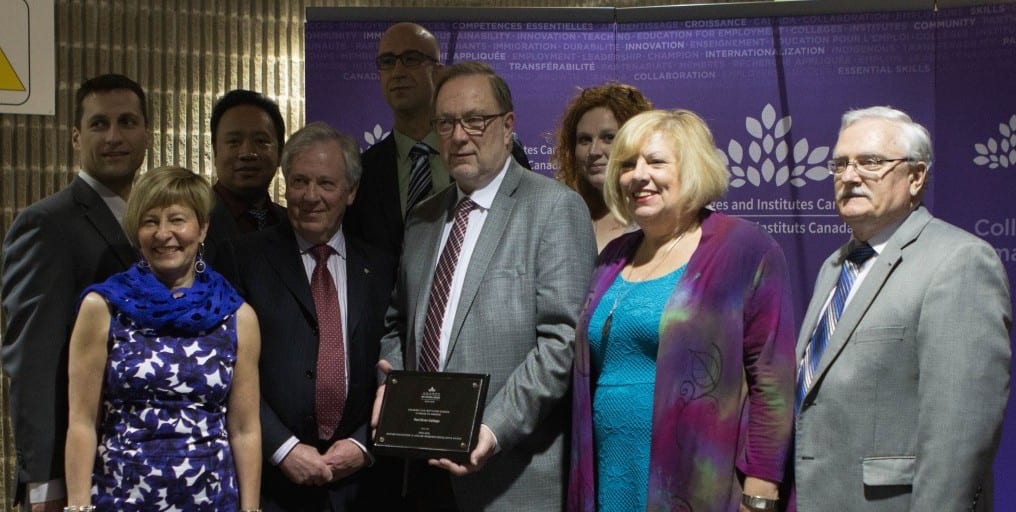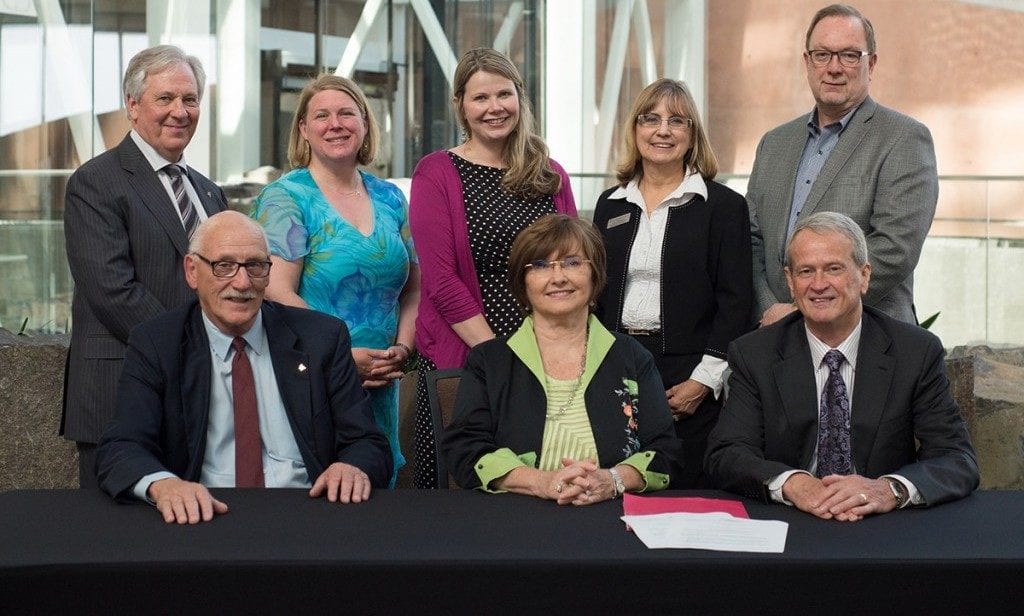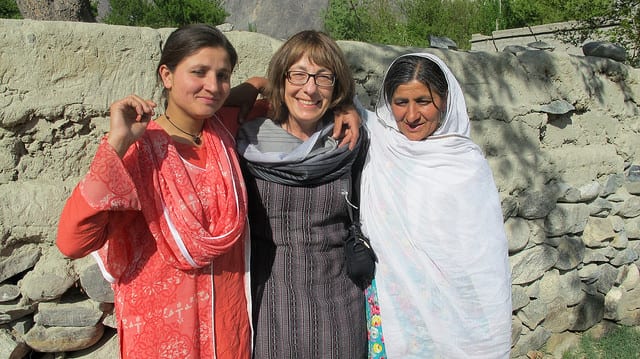RRC earns national award for innovation in applied research
Red River College earned a bronze award for Innovation in Applied Research this week, during the closing gala of College and Institute Canada’s (CICan) annual conference in Winnipeg.
The award celebrates the College’s dynamic applied research partnership with Manitoba Hydro.
“We are pleased to be recognized for the work we have done with Manitoba Hydro, one of our most important research partners and graduate employers,” said David Rew, interim president and CEO of RRC. “What an excellent opportunity to celebrate our research achievements in sustainable technology and design.”
The College’s research collaboration with Manitoba Hydro has focused primarily on green building design and technology, and on the electrification of vehicles. Two of its most notable projects include Manitoba Hydro’s award-winning energy efficient downtown office tower and more recently, the all-electric transit bus.
“Our partnership with RRC has fostered an environment for creative integration on leading-edge technology that contributes to a more sustainable future,” said Scott Thomson, president and CEO of Manitoba Hydro. “We view our relationship with the College as an important driver for long-term change that will promote continued innovation and advancement of energy efficiency in Manitoba.”
Manitoba Hydro is now a leading proponent and private sector funder for RRC’s Centre for Building Envelop Performance, for which the College was recently awarded $1.75 million from the Natural Sciences and Engineering Research Council of Canada.
Other notable projects the partnership has delivered include the parabolic solar trough project, air-leakage testing of over 20 commercial buildings in Manitoba, one of the largest plug-in hybrid electric vehicle fleet in Canada for demonstrations, testing and more.
Gold and Silver in the Innovation in Applied Research category went to colleges from Ontario: Centennial College for its Applied Research and Innovation Centre, and Algonquin College.
“Once again we were thrilled by the submissions we received for the CICan Awards of Excellence,” said Denise Amyot, CICan president and CEO. “Canada’s colleges and institutes never cease to amaze us with their innovative spirit and creativity and this year’s winners definitely embody the best that they have to offer.”
It’s the second time CICan has recognized RRC with a national award. In 2011, they honoured Ray Hoemsen, director of Applied Research & Commercialization, with their Gold Leadership Excellence award.
In the past year, Red River College’s applied research program has been recognized both nationally — with its second consecutive Top 10 research college ranking by Research Infosource — and internationally, with an International Award of Excellence for its commitment to social development from the World Federation of Colleges and Polytechnics.









